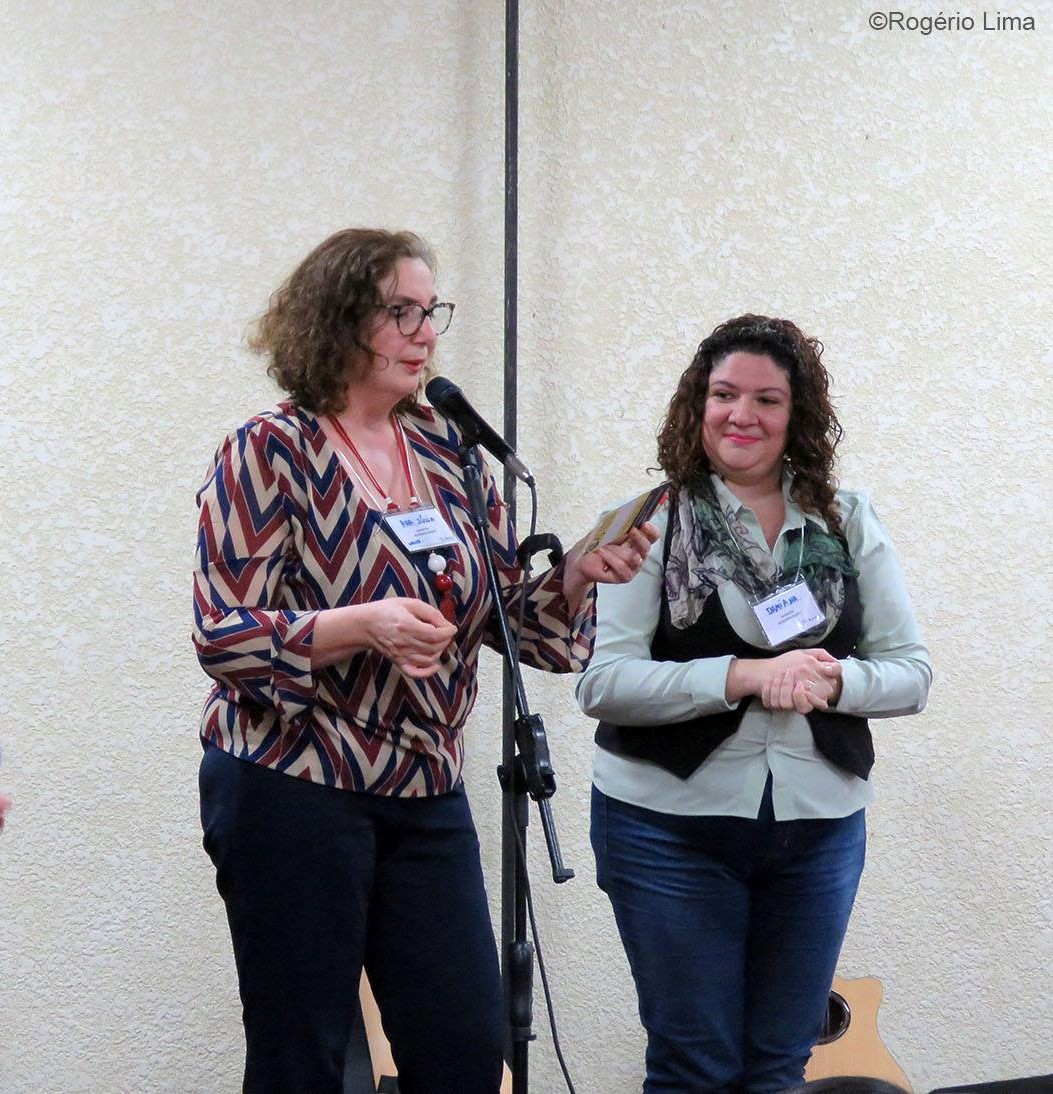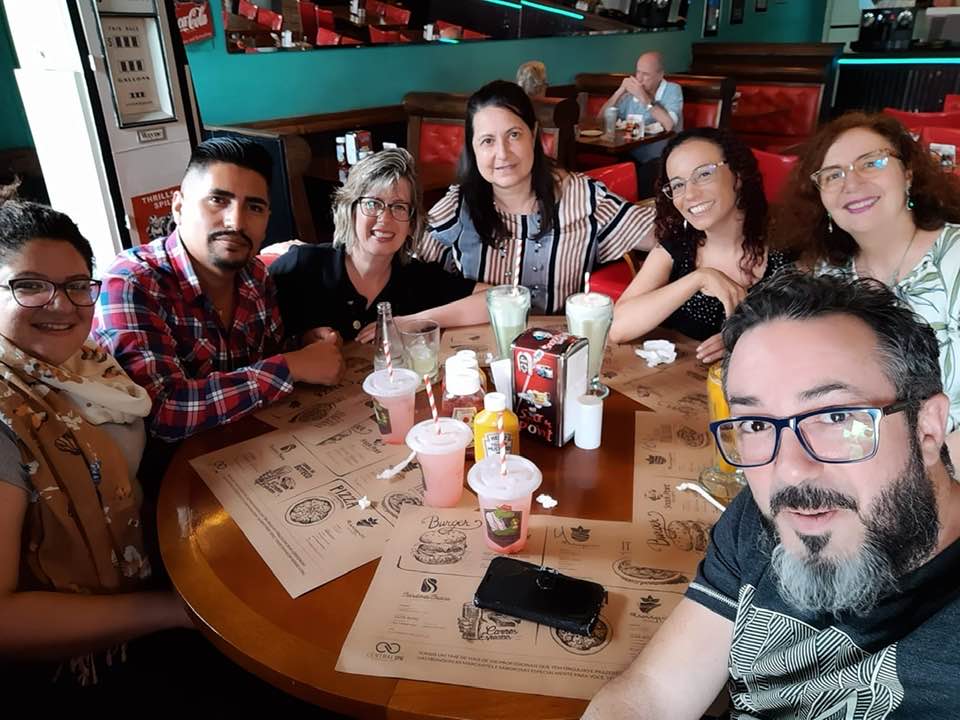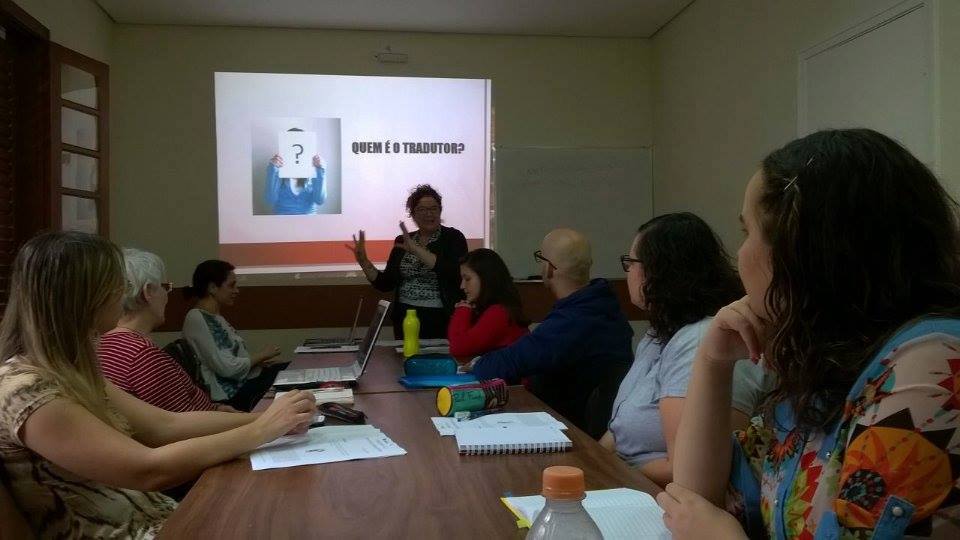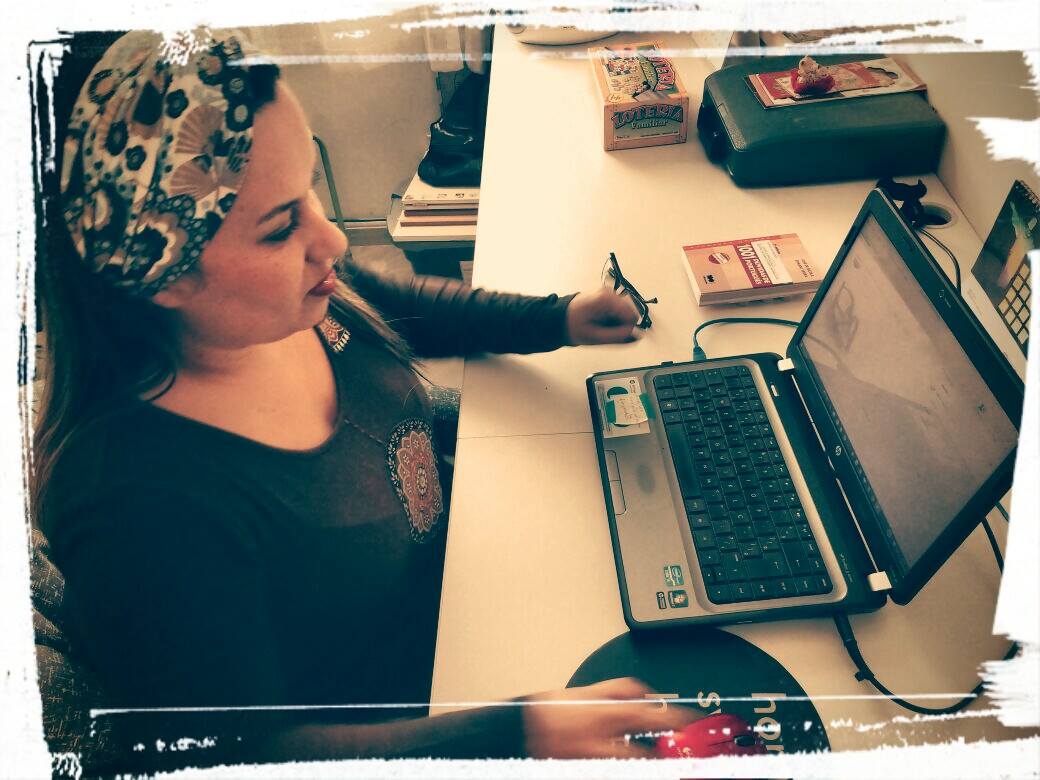Rafa Lombardino

We interviewed Damiana Rosa de Oliveira, one of the co-founders of Escola de Tradutores (“School of Translators”) and A voz do tradutor (“The Voice of Translators”) podcast, to learn more about what translators, interpreters, and copy editors have sought in their community. We learned that; besides knowledge, our peers crave live interaction.
Damiana went to Universidade Metodista in São Paulo and completed her extension studies in Spanish and Portuguese Translation/Interpretation at Universidade Gama Filho. For five years, she was part of a UNESCO team promoting Communication for Regional Development, where she participated in activities that addressed communications in Latin America. Damiana is a translator and copy editor for Portuguese and Spanish and specializes in technical subjects – such as civil engineering, information technology and academic research – as well as creative materials, including literature, movies, education, music, and culture. She also works as a subtitler of movies, soap operas, and documentaries.
How did Escola de Tradutores come to be?
It all started when translator Victor Gonzales and I thought about organizing a language soirée, which we then called “Sarau das Letras.” The idea was to have a place where translators could get together and learn from each other. This was back in the days of Orkut – the now defunct Google social media platform – and I posted an invitation to a translator discussion group, offering to host the first event at my place. On that first get-together, there were eight of us, including Victor and me, and we were all very surprised with the outcome! We then planned another event, and each time someone would put a presentation together to share their knowledge with the rest of the group. One day, it got to a point that we didn’t have enough chairs to accommodate all of the peers, including people from other states who were spending some time in São Paulo and decided to pop in to the meeting.
We noticed people were complaining about the lack of courses and events for translators and interpreters outside of the main hubs, Rio and São Paulo, and how hard and expensive it was to attend these gatherings. These colleagues wanted to take webinars and watch lectures online, so we started to think of a way to make it possible for us to interact live, in real time, as we had been doing at the get-togethers.
We then got together with the Aula Vox platform, which made it all possible. Our managers came from those early soirées: Victor Gonzales, Ana Julia Perrotti-Garcia, Marly Tooge, Mônica Rodrigues, Simone Castro, and me. Later on, Paloma Bueno, Ana Carolina Konecsni Bruni, Gustavo Spandau, Isabel Vidigal, and Cátia Santana joined us to expand the project.
I ended up taking care of administrative matters, since I had previous experience as an office administrator, but Escola de Tradutores is a collective project managed by our big family of translators and interpreters. We make decisions as a group and have regular meetings since Escola de Tradutores was effectively put together in 2016. We chose this name to pay homage to Paulo Rónai [Hungarian-born Brazilian translator and philologist] who greatly inspires us all. We asked his daughter for permission and the family was very happy with our tribute to him.
What is the primary mission of Escola de Tradutores?
To organize workshops and classes online; but making sure that they are interactive and provide a learning opportunity that combines both theory and practice, as well as the love we have for our professional activity.
What are the main benefits and/or events offered to beginners?
Our main attraction is real-time interaction with the speaker and other attendees. Every course and workshop is exclusively dedicated to the needs of that particular group. We try to offer brief workshops that provide exercises and practical activities on a specific subject. Besides that, we organize webinars about the market, so that beginners can acquire the tools they need to look for their first clients.
How about experienced professionals?
We offer courses and workshops on a variety of translation subjects: graphic novels, health, legal, literary, audiovisual… As well as CAT tools. Escola de Tradutores is always developing events for those who wish to improve their skills in a particular area and want to have a larger presence in the market.
What do translators and interpreters tell Escola de Tradutores they are more interested in learning in order to grow professionally?
They say they want to use social networking more effectively to find clients, and they also want to acquire specific knowledge in corpus linguistics and interpretation techniques. Our biggest challenge is to offer courses that will address those needs to fill the gap that translators, interpreters, and copy editors have identified.
What would you say to your peers about what the new decade may bring to the translation and interpretation world?
We will be facing many challenges in this new decade, but I believe we must make two things our main priorities. The first thing is professional ethics. We urgently must learn how to respect our peers. Instead of seeing them as competitors, we should see them as colleagues. Besides, being ethical also means respecting good professional practices. The second priority would be to seek professional standards, so we can offer quality services and stand out in the industry.




Leave a Reply